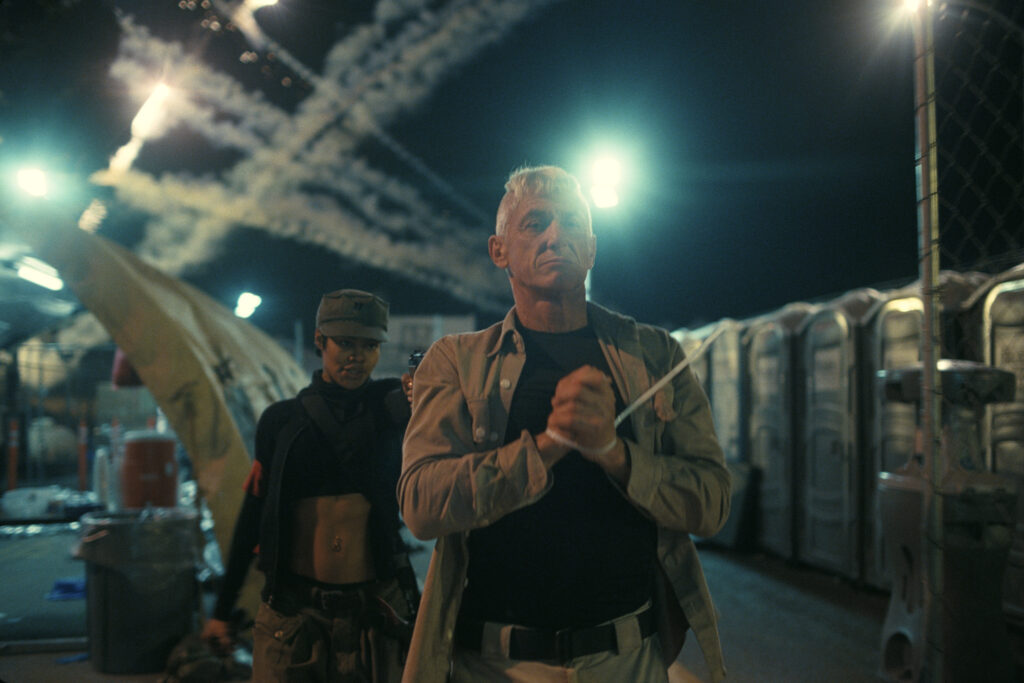Can a divided nation be healed? Amid aggressive government enforcement of immigration policies, the assassination of a prominent right-wing political activist, and a surge in ideologically motivated violence, the United States finds itself at a crossroads. One Battle After Another, a searing new political thriller, arrives at a moment when the country’s fractures feel irreparable. To call its release timely would be a profound understatement.
Anchored by a stacked cast, One Battle After Another thrives on its performances. Leonardo DiCaprio leads with a disarming vulnerability that makes his character both painfully and hilariously relatable. Benicio Del Toro, meanwhile, delivers a charismatic performance as a character who embodies the rare kind of empathy the film argues America is in desperate need of. He possesses a moral compass that grounds the movie considerably. Then there’s Sean Penn, who chews the screen with a menacing intensity, embodying an unstoppable force that fuels the film’s relentless cat-and-mouse chase. Together, the trio elevates a tense political thriller into something far more emotionally resonant.

Making her stunning film debut, Chase Infiniti delivers a knockout performance as Willa Ferguson. In a role that could have easily relegated her to the confines of a damsel in distress, Infiniti defies expectations with a fiercely independent portrayal. The writing and direction play a significant role in giving her agency, but it’s her raw, commanding presence that allows Ferguson to hold her own, even when sharing scenes with Hollywood heavyweights. It’s a star-making turn that proves she belongs on the same stage as her seasoned co-stars.
Directed by Paul Thomas Anderson, One Battle After Another is relentless in its storytelling, often veering into unexpected territory that challenges audience expectations. At first glance, the film’s aesthetic leans heavily into the visual language of high-octane, testosterone-fueled action thrillers — all sharp cuts, brooding silhouettes, and impressing chase sequences. But beneath the surface, Anderson weaves in a subtle emotional undercurrent, using sparse piano or delicate guitar strings to score even the most brutal scenes. The result is a striking tonal contrast: a film that feels both overwhelming and eerily intimate, keeping viewers on edge from start to finish.

All in all, One Battle After Another is a gripping, emotionally charged thriller that captures the volatility of our times with haunting precision. While the second act can feel a tad drawn out, a brief lull in an otherwise tightly wound narrative, that’s nitpicking in the grand scheme of things. Anchored by standout performances and Paul Thomas Anderson’s stellar direction, the film doesn’t just entertain; it unsettles, provokes, and ultimately resonates. In essence, it’s a desperate plea for people to reconsider their ideologies — not to abandon conviction, but to stop charging into belief systems headstrong and blindly, without questioning what or whom they’re truly fighting for.






